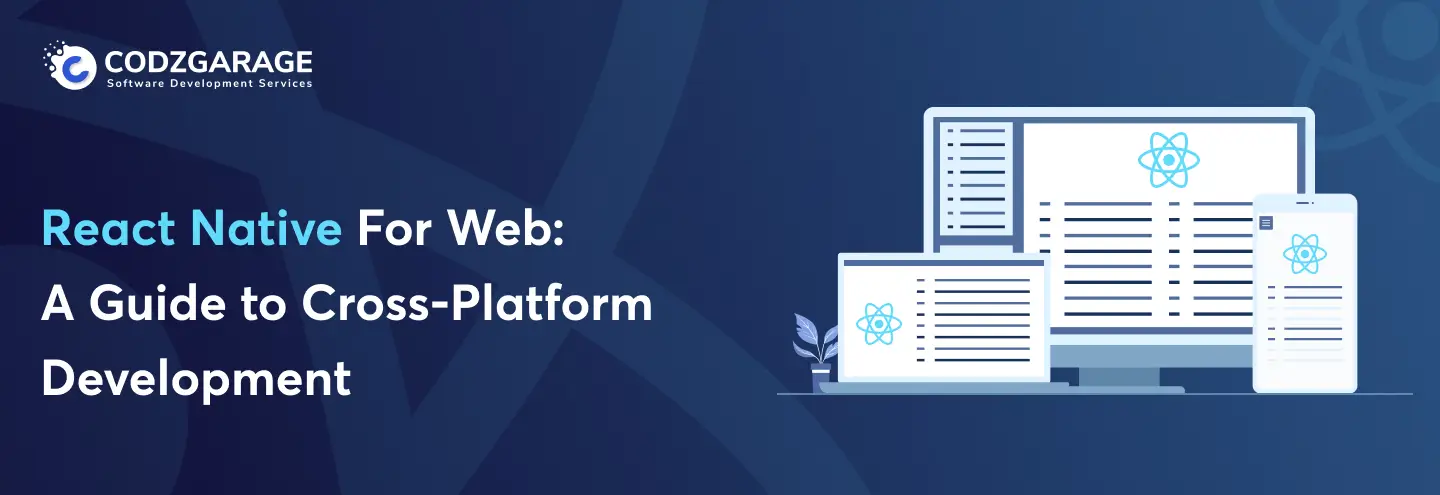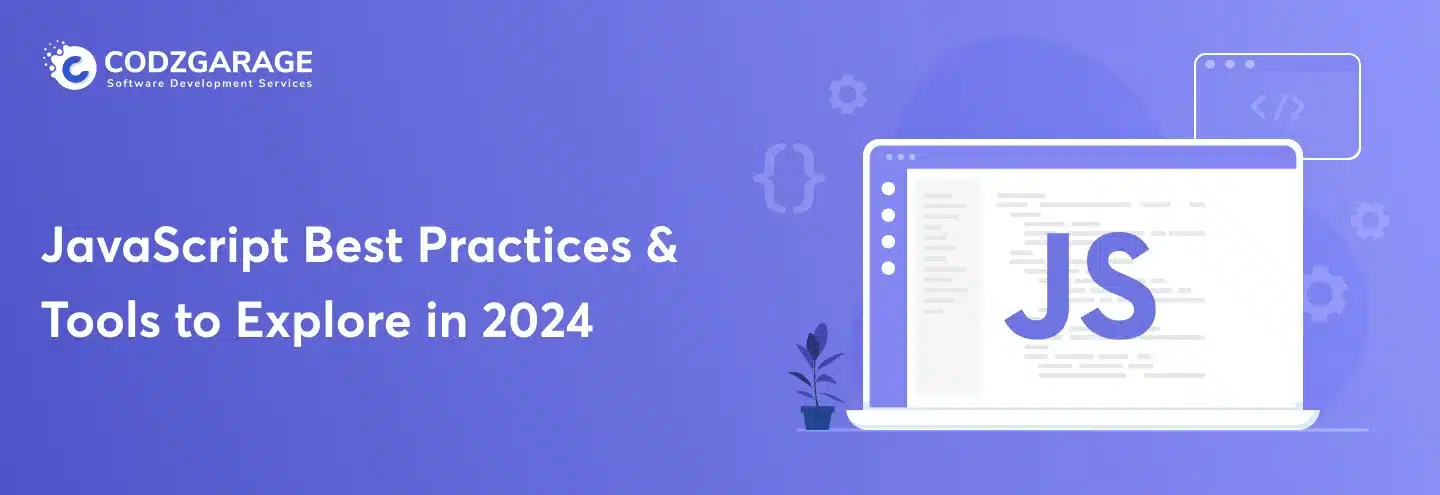-
1923
Top Cross-Platform Application Development Frameworks To Use In 2024
Want to build cross platform applications for web and mobile? You have plenty of frameworks out in the market to choose. Which one is good for you? The best way to find the right frameworks for your project is to explore the top ones and pick out the one which good enough for your project.
There are 6.6 billion smartphone users worldwide, which is anticipated to grow up to 6.8 billion by 2023. The growth isn’t going to stay still but will constantly be growing in the years ahead. This propels business owners toward mobile app development.
There are times when you have selected a range of app development frameworks, but today we have limitless options. Technologies have evolved but it has brought some challenges for mobile developers to choose the best fit frameworks for app development. There are different platforms on which you can deploy your app, but developing separate apps for each platform seems to be an uphill task as you may have to create native app separately for each platform. Why not build a platform-agnostic app that runs on various platforms? If you are aware about native and cross platform, it’s possible with cross-platform app development frameworks.
When it comes to cross platform app development, Codzgarage is the name of the game. We have expertise in Android and iOS development and engineers who understand your business and know what technology will make better apps specific to your business vertical. Let’s connect today.
In today’s rapidly changing technological realm, creating cross-platform apps is the right choice to ensure your reach to your end-users with less hassle. This article involves the top 12 Cross Platform App Development Frameworks to build platform-independent apps, but we have covered the following points to make the article comprehensive.
- What is Cross-Platform Mobile App Development?
- What is Cross Platform App Development Framework?
- Why Should You Build Cross-Platform Applications?
- Advantages Of Cross Platform App Development
- Top Cross-Platform App Development Frameworks In 2024
Let’s look up and down!
What is Cross Platform Mobile App Development?
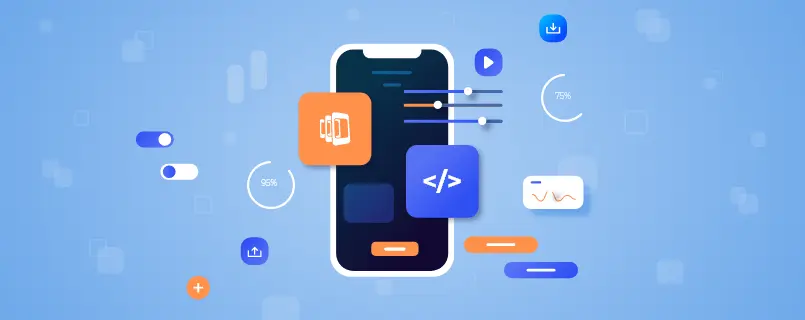
As the name suggests, cross-platform or hybrid app development is the process of developing applications that run independently on various platforms like iOS, Android, and so on. The combination of independent and native code facilitates cross-platform apps embellished with a native look and feel.
Developers can create the code once and reuse it for other projects making the app development process faster and more efficient.
What’s Cross Platform App Development Framework?
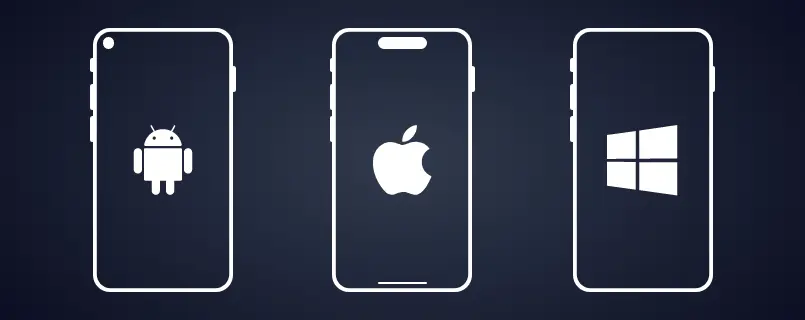
In a nutshell, a cross-platform or Multi-Platform App Development Framework is a program that allows the creation of a single reusable codebase and the development of applications that work on different platforms independently. The frameworks enable you to create applications that run on multiple platforms, including Android, iOS, Windows, and so on.
With cross-platform frameworks, you can save time, effort, and resources, but the quality of your application may be at risk. It might be because it’s tough to offer ample running of one app on different platforms. Furthermore, you won’t be able to customize the app beyond what’s available in the particular framework.
Why Should You Build Cross-Platform Applications?

When it comes to the usability of Cross-platform mobile app development, it’s plenty. Creating a cross-platform app is the perfect choice for startups as well as enterprises that are already established to streamline their customer base. The cross-platform development frameworks have compatibility in Android and iOS with operating systems like Windows, Linux, and Blackberry, enabling you to build one app and deploy that for multiple users.
Besides, Cross-platform application development is an excellent choice for the ones on the lookout for a simple mobile app without complex animations and functionalities. Let’s look at some of the advantages you can get when you choose to build a cross-platform app!
Advantages Of Cross-Platform App Development
Following are the advantages of going with cross-platform development!
Enhanced Exposure To Target Customers
Mobile applications built using cross-platform frameworks can be launched over different platforms. As a result, you can develop a single app and target users on iOS, Android, and other platforms to enhance your company’s reach.
Convenient Development & Maintenance
App developers create single source code in cross-platform development methodology resulting in an easy and streamlined development and easy-to-maintain applications. Besides, updating processes becomes easy as they are synced to several platforms reducing time and effort.
Easy Integration With Cloud
When it comes to cross-platform development, developers coordinate the single source code with different plugins and extensions to enhance the scalability and functionality of the application. This enables cross-platform applications conveniently get integrated with the cloud.
Less Cost And Resources
Developing a single app that can run on multiple platforms can save a significant amount of money, as opposed to developing separate apps for each platform. The core concept of cross-platform app development is to reuse the code; hence, it follows an agile development methodology assisting you in managing quality, budget, and the development time of the project.
Faster development
Cross-platform development tools allow for faster development times by allowing developers to write code once and run it on multiple platforms.
Increased reach
By developing a cross-platform app, you can reach a wider audience as your app can be made available on multiple app stores.
Consistency across platforms
Cross-platform development ensures that the app looks and feels the same across all platforms, which is important for user experience and brand consistency.
Reusability of code
Cross-platform development allows developers to reuse a significant amount of code, which can save time and money.
Top Cross-Platform App Development Frameworks In 2024
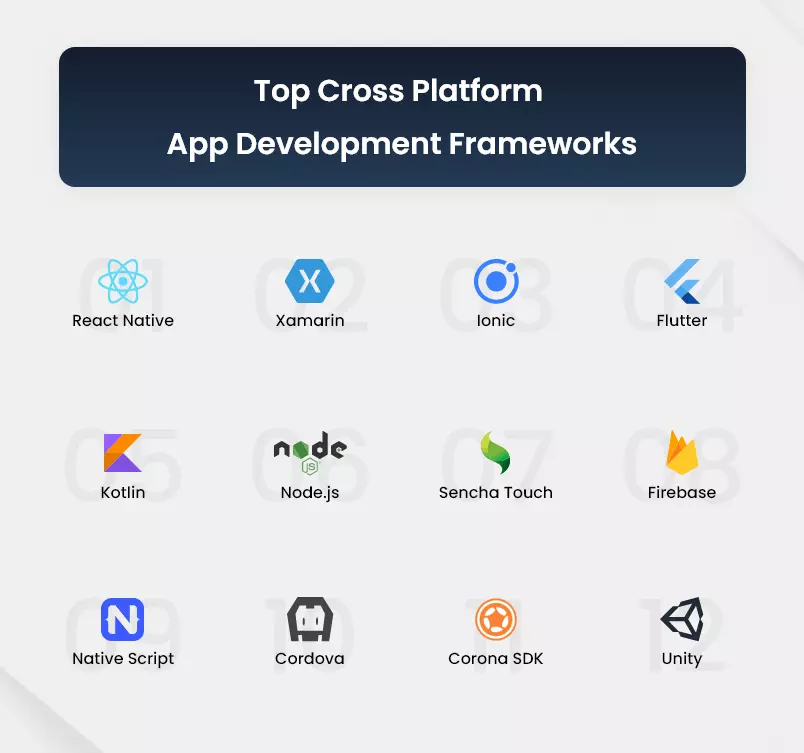
We have assessed all the basics relating to cross-platform application development, for instance, what cross-platform apps are, their development, and frameworks used to create cross-platform applications, along with their uses and advantages. Now is the time we look at some of the most used cross-platform development frameworks to use in 2024.
Here are some of the most used cross-platform application development frameworks to consider in the year to come. Statista advocates that most of these are popular and are preferred by developers worldwide.
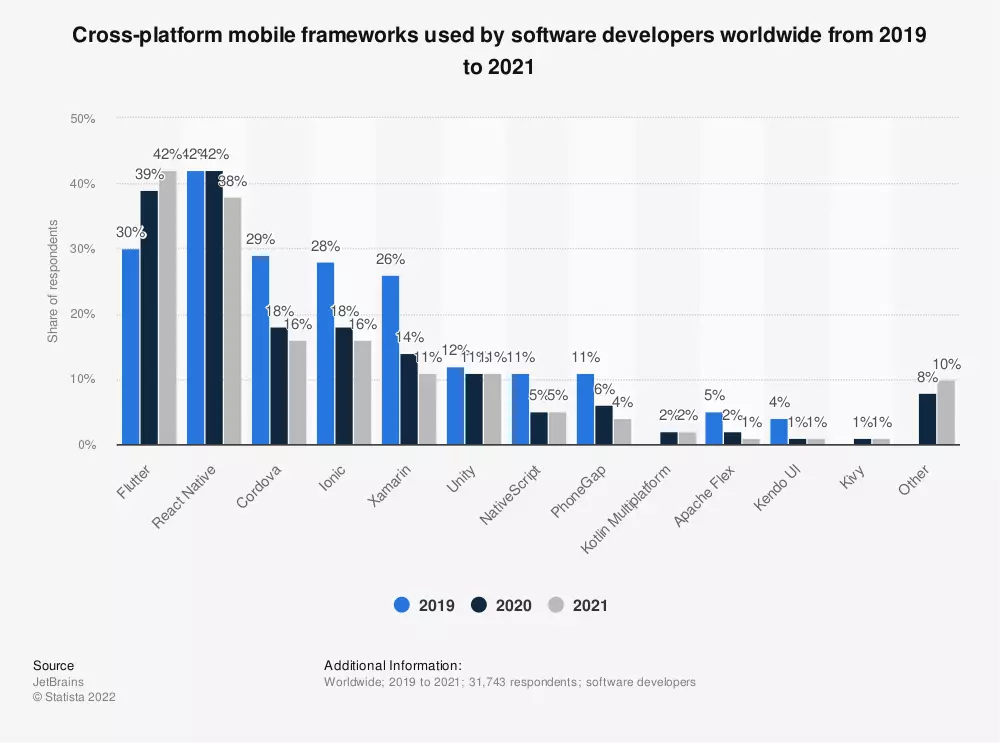
#1: React Native
React Native to create a mobile application is a common phenomena. Nowadays, React Native for Web is grabbing a lot of attention. React Native is the framework developed by Facebook. It allows developers build cross platform applications which can run across both iOS and Android platforms. The framework is easy to use, an excellent fit for different platforms, and an ideal choice for developers across the globe. If you want to find some cost effective mobile application option, then React Native development is the choice for you.
#2: Xamarin
Xamarin is a cross-platform application development technology backed by Microsoft. This cross-platform app development framework isn’t that popular; however, Xamarin is a preferred choice of developers in the tech arena. It allows application development for platforms like Android, iOS, and Windows using C#, .NET, and HTML. It offers a native-like feel to the application by facilitating a link to native libraries, access to native-level functionality, and a customization facility.
#3: Ionic
The next one on our list is Ionic. It’s an open-source and cross-platform applications development framework that’s highly advantageous for creating applications. The framework ensures offering a high-end user experience that the users feel adorable. It’s a perfect amalgamation of native features and performance with HTML-5-based user interface creation. Ionic is an excellent choice for those on the lookout for extraordinary app development.
#4: Flutter
This one is the next in our list of cross-platform app development frameworks. It’s the framework you can use to build cross-platform mobile apps for iOS and Android with no need to write different codebases, albeit Flutter for web development is new normal nowadays. Furthermore, you can develop web applications for Windows and Linux with the same codebase.
Some of the pluses of using flutter are allowing you to use the same UI and logic for different platforms, equal native app performance, Fast app testing with the hot reload feature, and so on. So, if you are heading to Flutter development, make sure you have explored about Flutter and its rivals.
#5: Kotlin
Surprised to see Kotlin under the cross-platform development framework category? Kotlin has expanded its competencies for cross-platform development. Going beyond Android development, the framework allows developers to share data, codes, and business logic across platforms, for instance, Android, iOS, Linux, Web, macOS, and JVM.
Kotlin has an easy learning curve, renders high performance, and keeps developers free to customize the UI and UX design with no limitations.
#6: Sencha Touch
It’s another cross-platform development framework on our list. Sencha Touch is a well-known framework for developing UI for mobile applications using simple HTML, CSS, and JavaScript. This cross-platform framework is based on MVC architecture and can perfectly replicate most of the native features.
Sencha Touch has emerged as one of the best frameworks for developing robust applications that perform well on different platforms hassle-free.
#7: Firebase
Now, Firebase is the next one. The framework is a BaaS (backend as a service) platform for cross-platform app development. The cross-platform application development framework provides developers with different services and tools to help them develop customized applications for their needs and revenue. The framework comes with powerful features to build, improve, and handle apps.
Firebase owns exceptionally appealing features such as authentication, push messages, analytics, file storage, databases, and so on.
#8: NativeScript
The next one is NativeScript. It’s a popular and widely used cross-platform framework for creating applications. It’s an open-source framework that helps you build native apps with JavaScript or any other language that transpile to JavaScript, like TypeSctips. Using JavaScript, Angular, or TypeScript, this framework offers direct access to all native platform APIs. Therefore, it provides a native-like experience on the web, iOS, and Android.
#9: Cordova
Now, we’ve Cordova on our list. It leverages state-of-the-art technologies, for example, CSS, JS, and HTML5, to create platform-agnostic applications that function on an integrated mobile web browser. With the framework, there’s no need to learn platform-specific programming languages and access native features through plugins. This results in reducing the time involved in application development, contributing to streamlined application development and time to market.
#10: Corona SDK
Now, we have Corona SDK on our list. It’s a cross-platform development framework to develop 2D games for desktop and mobile devices. The framework was built in 2009 by Corona Labs Inc. Corona SDK is well known for developing highly robust and scalable applications in a reduced time. With OpenGL hardware acceleration for graphics and animation, the framework is a high-performance development tool for developers worldwide.
#11: Unity
Last but not least. Unity is a cross-platform Mobile Applications Development framework used to develop cross-platform gaming applications. Thanks to its streamlined interface and workflow, the framework is one of the popular game engines for creating applications for iOS and Android platforms. However, Unity isn’t limited to developing gaming applications; you can also utilize it for the previsualization of film, animation, and architectural visualization.
Some of the features of Unity are best-in-class graphics to optimize the gaming experience, the capability to render 2D and 3D scenes in a cross-platform app, and many others.
#12: Node.js
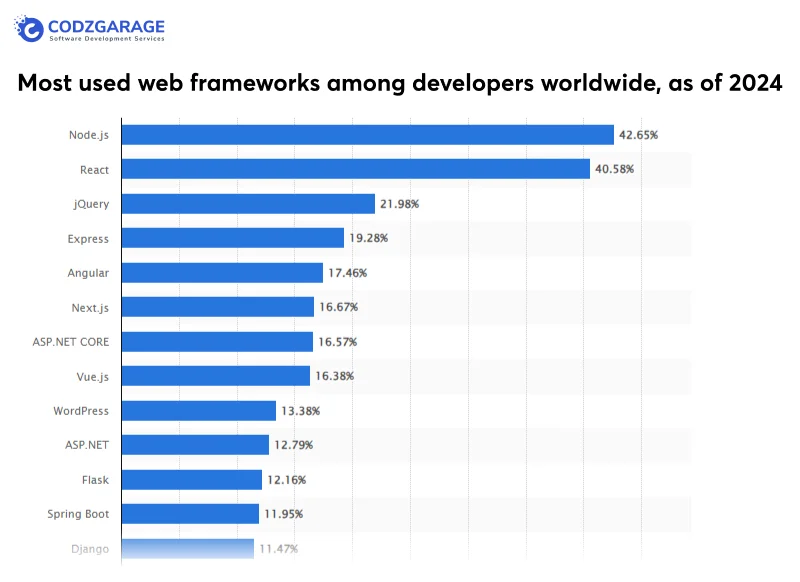
Another framework in our list is Node.js. It’s an open-source, cross-platform app development framework that’s one of the most used (with a 42.65% share in cross-platform app development) frameworks in 2023. This is a js-based runtime framework that supports server-side application development and scalable networking application that is highly responsive and efficacious.
Besides, the single-thread nature of the framework makes sure that the app functions seamlessly and doesn’t buffer as the application’s output data is received in chunks.
Final Thoughts!
The proliferated growth in the use of smartphones has streamlined the need for mobile app development— it’s one of the best ways to approach a wide range of customers. There are several platforms for which you can build a mobile app and deploy that, but creating separate applications for each platform might be an exasperating task; hence you should consider cross-platform app development.
With cross-platform development, you can create an application with competencies to run on various platforms like Android, iOS, etc. Considering the need of businesses, we have assessed some of the cross-platform development frameworks that’ll assist you when building platform-agnostic apps for your business. Explore this article again and hire the best mobile app developers for your projects.
Want to
Hire Hybrid App DevelopersSkill Set of Our Developers
- Vetted resources
- 11+ years of experience
- Committed to deadline



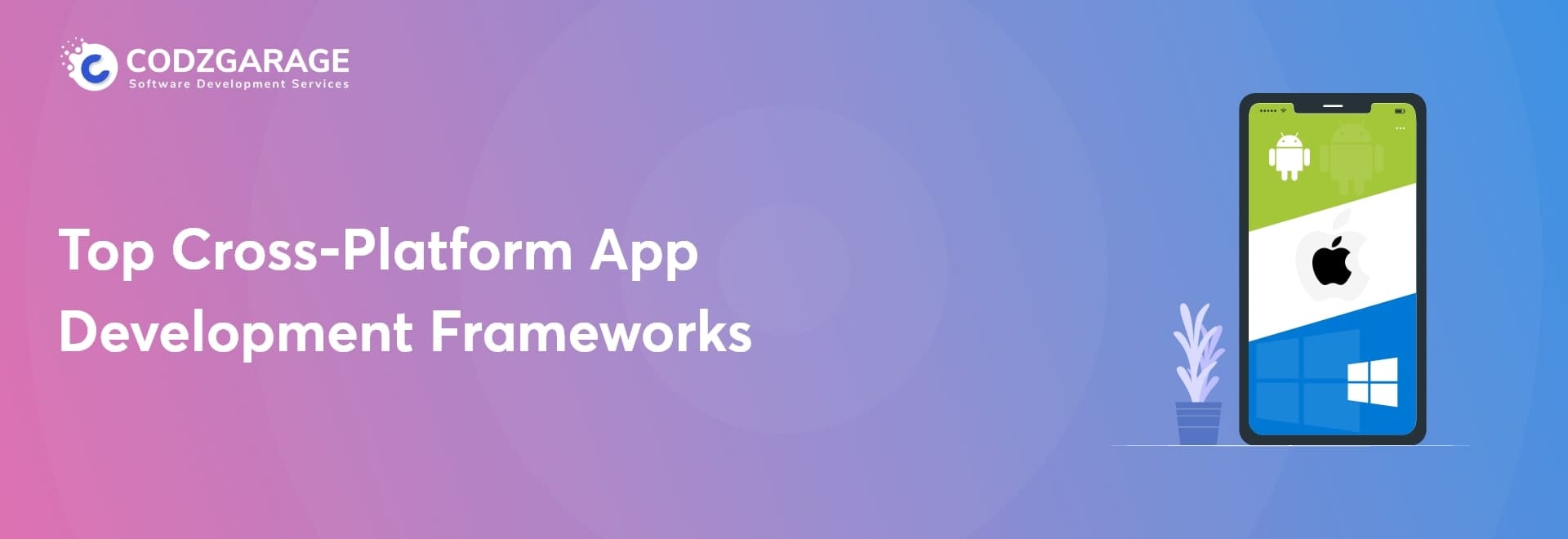


 Paresh Kapuriya
Paresh Kapuriya 
